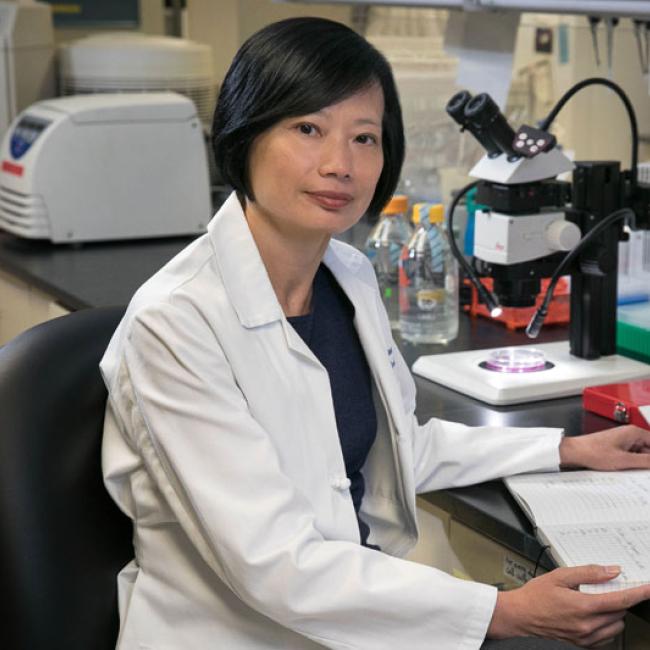UCLA scientist receives CIRM bridging fund award to treat blinding eye disorder
Dr. Sophie Deng, a prominent clinician scientist at UCLA’s Eli and Edythe Broad Center of Regenerative Medicine and Stem Cell Research, has been awarded a Bridging Supplement Award of $699,983 from the California Institute of Regenerative Medicine (CIRM), the state’s stem cell agency, recognizing her cutting-edge, innovative research.
Dr. Deng, noted by CIRM as a leader in the field, is a corneal specialist and associate professor of ophthalmology at UCLA. She was one of only two California investigators to receive CIRM Bridging Fund grants. She was awarded a CIRM Early Translational II grant in 2010, totaling $1.6 million, for her project to regenerate functional human corneal epithelial progenitor cells to treat a blinding corneal disorder called limbal stem cell deficiency (LSCD). The new Bridge grant acknowledges the critical success of her project to-date and will provide the basis for new investigational drug applications to the FDA that will combine biology and engineering tools to efficiently expand and regenerate patient–specific limbal stem cells for transplantation to treat blindness through the initiation of human clinical trials.
"This award recognizes the need to bring this stem cell treatment that is available in Europe to the United States, and to standardize the treatment protocols, which will benefit patients around the world," said Dr. Deng. "I am tremendously grateful that CIRM has funded our research to the next stage of pre-clinical development, and excited for the future improvements in clinical outcome that is now possible for these treatments."
Corneal diseases are the second leading cause of treatable blindness in the world and more than 3.2 million people worldwide lose their sight from it. LSCD has been recognized as a major cause, either primary or secondary, of significant visual loss and blindness in many common corneal disorders, such as chemical/thermal burn, keratopathy related to contact lens wear, and severe infection and inflammation.
“Supporting projects like these is what we were created to do,” says CIRM Chairman Jonathan Thomas. “Without us, this kind of work almost certainly would not get the funding it needs, and the patients suffering from these conditions would be left without any hope that a therapy might one day help people suffering from these conditions.”
Established in 2011, the Bridging Fund Program provides supplemental funding in exceptional circumstances to investigators with an active CIRM award. This $12 million initiative enables the most promising CIRM-funded projects to continue without interruption and achieve significant translational and/or transformational results that could not otherwise be accomplished with existing CIRM-awarded funds.
Announcement of the award came at the meeting of the CIRM Independent Citizens’ Oversight Committee (ICOC), the governing board of the agency, in Millbrae, CA on July 24, 2014.
